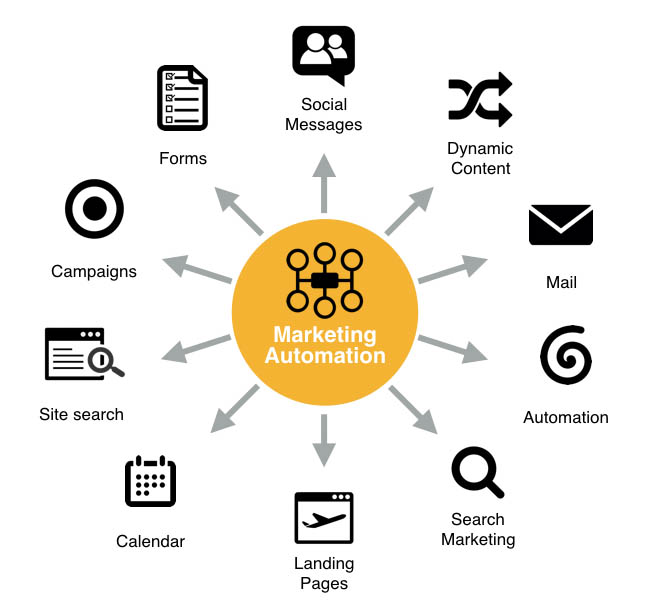Marketing Automation
What is Marketing Automation?
Definition:
Marketing Automation refers to the use of software and technologies to automate repetitive marketing tasks and workflows, aiming to streamline processes, increase efficiency, and enhance customer engagement. It involves the implementation of tools that facilitate lead nurturing, segmentation, personalized communication, and the analysis of marketing campaign performance. Marketing automation allows businesses to deliver targeted messages to specific audiences at the right time, ultimately optimizing marketing efforts and driving better results.
Analogy:
Think of marketing automation as a well-orchestrated symphony. Just as a conductor coordinates various instruments to create harmonious music, marketing automation coordinates different marketing activities, ensuring they work together seamlessly to produce a cohesive and effective campaign.
Further Description:
Marketing automation involves several key components:
Lead Management: Marketing automation tools help manage leads throughout the customer journey, from initial awareness to conversion. This includes lead scoring, nurturing, and tracking.
Email Marketing Automation: Automated email campaigns allow businesses to send personalized and timely messages to leads and customers. This can include welcome emails, follow-ups, and targeted content based on user behavior.
Campaign Tracking and Analytics: Marketing automation platforms provide insights into the performance of marketing campaigns. This includes metrics such as open rates, click-through rates, and conversion rates, enabling data-driven decision-making.
Personalization: Tailoring content and messages based on user behavior, preferences, and demographics enhances the relevance of marketing communication, increasing the likelihood of engagement.
Workflow Automation: Automation of repetitive tasks and processes, such as social media posting, data entry, and lead assignment, frees up time for marketers to focus on strategy and creativity.
Integration with CRM Systems: Seamless integration with Customer Relationship Management (CRM) systems ensures that marketing and sales teams have a unified view of customer interactions and can collaborate effectively.
Why is Marketing Automation Important?
Efficiency and Time Savings: Automation reduces manual effort in executing repetitive tasks, allowing marketers to allocate their time more strategically and focus on high-impact activities.
Consistent Communication: Marketing automation ensures consistent and timely communication with leads and customers, fostering engagement and nurturing relationships throughout the buyer’s journey.
Lead Nurturing: Automated workflows enable the delivery of targeted content to leads at different stages of the sales funnel, guiding them towards conversion.
Scalability: As businesses grow, marketing automation helps scale marketing efforts without proportional increases in resources, making it a cost-effective solution.
Data-Driven Decision Making: Analytics and reporting features provide valuable insights into campaign performance, enabling marketers to make data-driven decisions and optimize strategies.
Examples and Usage:
Mailchimp: Mailchimp is a popular marketing automation platform that offers features like email marketing, audience segmentation, and automated campaigns, making it accessible for businesses of all sizes.
HubSpot: HubSpot provides an all-in-one platform for marketing, sales, and customer service, including robust marketing automation features. It allows users to create automated workflows, track leads, and analyze campaign performance.
E-commerce Platforms: Many e-commerce platforms use marketing automation to send personalized product recommendations, abandoned cart emails, and promotional offers based on customer behavior.
Key Takeaways:
- Marketing automation streamlines processes, saving time and effort.
- Automated workflows ensure timely and consistent communication with leads and customers.
- Automation facilitates targeted content delivery, nurturing leads through the sales funnel.
- Marketing automation allows businesses to scale marketing efforts efficiently.
- Analytics provide insights for informed decision-making and strategy optimization.
Table of Contents





